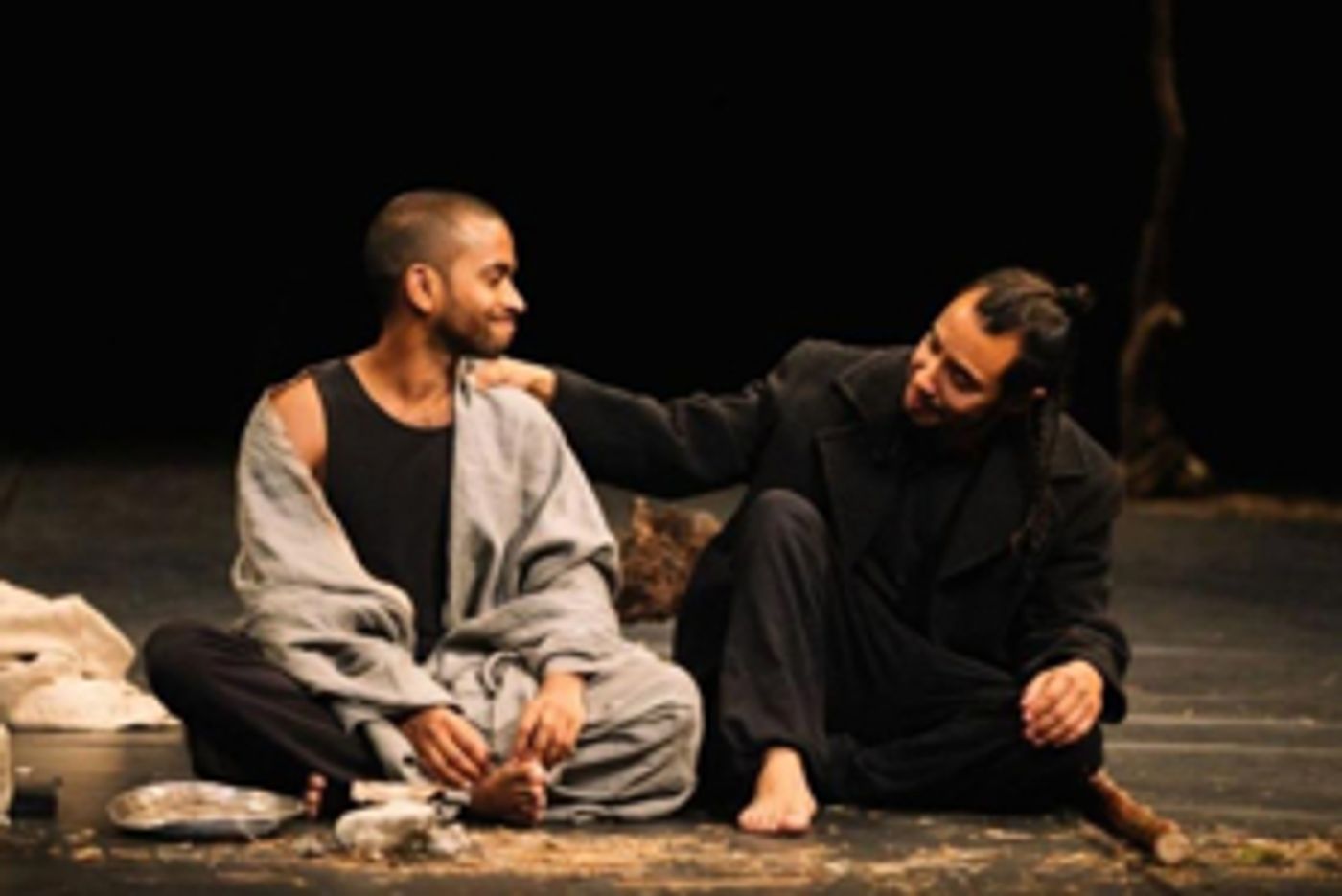Review Roundup: What Did Critics Think of The National's THE PRISONER?

Somewhere in the world, a man sits alone outside a prison. Who is he, and why is he there? Is it a choice, or a punishment?
Asking profound questions about justice, guilt and redemption, The Prisoner brings together a cast of acclaimed actors from around the world to explore some of the most compelling issues of our time.
Peter Brook and his long-time collaborator Marie-Hélène Estienne return to London with a provocative study of what it means to be free.
Cast includes Hiran Abeysekera, Hervé Goffings, Omar Silva, Kalieaswari Srinivasan and Donald Sumpter.
Directed by Peter Brook and Marie-Hélène Estienne, lighting design by Philippe Vialatteand stage elements by David Violi.
Let's see what the critics had to say...
Ben Lawrence, The Telegraph: One shouldn't denigrate Brook: he is a justly lauded figure who transformed what he famously described as "deadly" middle-class theatre in the Sixties and brought a vividness and a clarity to modern stagecraft in such acclaimed productions as his Midsummer Night's Dream and The Mahabharata (which, even through a jumpy DVD, I could tell was a masterpiece). There, however, his source material teemed with life. Sad to say, this thin and philosophically opaque work is pretty deadly too.
Fiona Mountford, The Evening Standard: It's hard to go with the extremities of this tale for a number of reasons, not least that nobody seems overly bothered by the incest. Brook and co-director Marie-Hélène Estienne introduce grave and fascinating ideas - is a prison within or without us? - which are not effectively pursued.
David Kettle, The Arts Desk: But there's something amiss here. David Violi's Godot-like set (or "set elements", as the programme describes it) looks as stripped-down and raw as a theatre set could be. But the stunted branches and piles of sawdust are, of course, just as artfully artificial in their own way as any more modern construction. Likewise the story, though drawing on tropes of ancient myths and archetypal narratives, lacks a clear sense of direction or even forward movement, doubling back on itself in time and shifting narrative perspective confusingly - not to mention digging up troubling issues of incest and abuse without attempting to grapple with their implications.
Tom Wicker, TimeOut London: Brook's dislike of the 'embellishments' of traditional theatre results in a spare staging that revels in its lack of propulsion. The forward beat of other, louder shows is missing. We watch Mavuso sit motionless as the sun comes up and goes down several times. There's something almost calming about it at times. But it's also loaded with its own sense of self-importance, and if you're going to do that, you better have something more than atmosphere to offer.
Photo Credit: Ryan Buchanan Photography
- To read more reviews, click here!
- Discuss the show on the BroadwayWorld Forum
Reader Reviews
Videos

